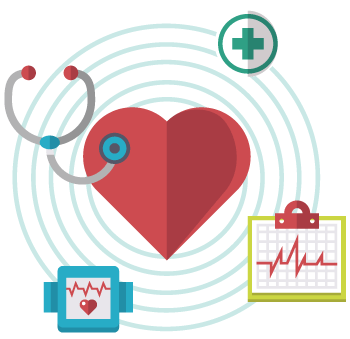WHAT IS A NURSE AIDE?
The healthcare reform of the past five years has placed significant emphasis on patient-centered skills. President Obama’s healthcare legislation has led to more individuals gaining access to medical care, resulting in increased pressure on clinics and hospitals due to the surge in demand.
While doctors and nurse practitioners excel in the latest medical practices, their expertise mainly focuses on clinical aspects such as diagnosing conditions, prescribing treatments, and analyzing results to customize patient plans. However, these roles often lack the personal touch that many patients desire, especially when faced with unfamiliar and distressing medical situations.
Amidst the changing healthcare landscape, nursing aides play a crucial role as a vital bridge connecting patients and healthcare practitioners. They serve as valuable and often hands-on resources for individuals who require assistance not necessarily with the overall blueprint of their comprehensive treatment, but rather in handling the day-to-day challenges that may be difficult for some.
ARE ONLINE NURSING AIDE PROGRAMS FOR YOU?
Here are some things to keep in mind when choosing an online nursing aide program.
When it comes to educational prerequisites, nursing aide roles demand less formal training compared to professions like doctors, nurse practitioners, or registered nurses. Unlike these occupations, nursing aide positions typically do not necessitate extensive medical or scientific education. Instead, the focus is primarily on direct patient care, assisting with daily activities such as bathing and dressing, rather than formulating and implementing treatment plans.
Given the hands-on nature of nursing aide work, many careers in this field offer on-the-job training, often requiring candidates to have a high school diploma or GED. Given the nature of patient interactions, communication skills hold paramount importance. The lion’s share of a nursing aide’s responsibilities involves interacting with patients, making effective communication skills indispensable. Additionally, considering the evolving demographics of the patient population, studying a foreign language like Spanish, French, or German can be advantageous.
In addition, it’s essential to note that in most states, nursing aides are required to obtain licensure before they can begin practicing.
1
Southern New Hampshire University
- Take advantage of some of the nation’s most affordable tuition rates, while earning a degree from a private, nonprofit, NEASC accredited university
- Qualified students with 2.5 GPA and up may receive up to $20K in grants & scholarships
- Multiple term start dates throughout the year. 24/7 online classroom access.
Popular Programs
Business Administration, Psychology, Information Technology, Human Services…
2
University of Arizona Global Campus
- 99% of University of Arizona Global Campus students study online
- University of Arizona Global Campus offers affordable tuition, so college is accessible to many students.
- he University of Arizona Global Campus (formerly Ashford University) is accredited by WASC Senior College and University Commission (WSCUC)
Available Programs
Accounting and Finance, Information Technology, Political Science…
3
Western Governors University
- Award-winning programs created to help you succeed.
- A quality education doesn’t have to be expensive. Earn an accredited degree for less.
- Programs start monthly – Apply free this week!
Sponsored Schools
WHAT DO ONLINE NURSING AIDE PROGRAM COURSES LOOK LIKE?
Some common courses include:
CPR and First Aid: Learn how to help patients during an emergency. This course may cover what to do in the event of choking, bleeding, shock, seizures, and more.
Intro to Health Sciences: This course may review the basics of how health care works – from science to business. And, you could learn how health care teams work together to get results.
Nurse Aide Skills: Find out what goes into serving diverse patient needs. You could learn basic nursing skills, ethics, and how to communicate with patients.
Nutrition: Discover the ins and outs of nutrition, and the role it plays in human health. You could learn how our nutritional needs change based on our behaviors and life stages.
NURSING AIDE POSSIBLE CAREER PATHS AND SALARIES
The diverse and wide-reaching nature of the medical profession means that, like doctors and nurses, nursing aides have a variety of settings in which they can practice. While many work in hard clinical settings such as hospitals, nursing aides can also be of great value in long-term care facilities and residential nursing homes.




